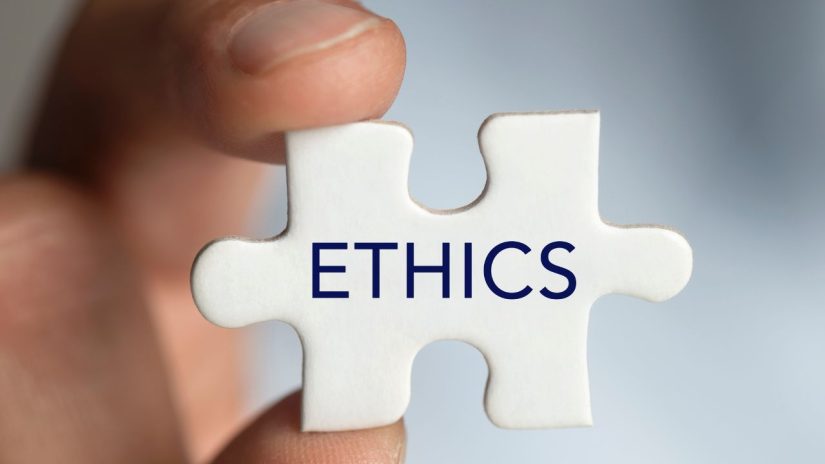
Athanasia Safitri
The 12th International Graduate Students and Scholars’ Conference in Indonesia (IGSSCI) was held on 7-8 November 2023 in the Graduate School of Universitas Gadjah Mada with ten main speakers and over a hundred panel speakers from different nationalities. The theme is ‘Ethics and Accountability in Politics, Sciences, and Professions” offering 15 related topics in four main sessions and 17 panel sessions. Dicky Sofjan, as the head of the organising committee, gave the welcoming remarks and mentioned the awareness of scientific development related to technology and AI. He also underlined the urgency in responding to the conflict in Gaza, and for academics to wisely do their research with good intentions.
Siti Malkhamah, the Dean of the Graduate School, officially opened the conference by stressing the importance of maintaining ethical conduct at the academic level for there have been challenges in various fields of life, related to politics, sciences, and professions. For the first main session, five speakers presented their findings on ethics in different spheres of citizenship, interreligious dialogue, academic integrity, genetic modification, and financial institutions. Focusing on politics, science, the rise of technocracy, and institutional accountability, the session exposed the need for ethical values from diverse angles.
Ethical values in policy and society
Purwo Santoso, a professor in Governance and Public Policy in the Department of Politics and Government UGM, started the session by presenting the citizenship ethics for exercising popular control. Regarding the presidential election and governance policy, there is not much popular control whereas many political parties are mistakenly interpreted. There have been criticisms against the process of electoral democracy. Santoso proposed to mainstream discourse of democracy as popular control, within which citizenship is the core of the issue where more active citizenry must be conducted to ensure the ethics in politics are carried out properly.
The second speaker was Paul Hedges from RSIS-Nanyang Technological University Singapore who discussed the perspective of the ethics of dialogue and interreligious ethics toward a global conversation on moral thinking. He invited the participants to be aware of the need to engage in global moral conversations and encourage us to do learning across religious and cultural borders. Hedges presented the worldviews and conceptions that lie behind ethical thinking and principles through the experience of the East Asia Buddhists. This principle was intended to be an example of how an interreligious ethical conversation may lead people to seeing in new ways in the society and building relation with others.
The importance of ethics in science and institutions
Frans Wijsen of Radboud University in the Netherlands showed the important conduct of ethics in science, especially with academic integrity and social safety in educational institutions. He displayed a case where a high-profile figure in a particular university resigned from his position due to a comment he made to a staff member over seven years before. He compared the situation with the policy of UGM whose goal is a safe and healthy university. Healthy universities must support antitoxic relationships between teaching staff and students, also among students and staff. He added that instead of being task oriented, universities should be student oriented where a personal approach and accompaniment for students are available. He concluded by stating that trust is a very essential ethic as the moral compass in educational institutions.
The fourth speaker, Michael Northcott from Edinburgh University, presented his shocking findings on the genetic modification of cells and organisms and highlighted the ethical code in science when it comes to community health in relation to a mosquito strategy project to eliminate dengue called Bali mosquito programme. There was a significant decrease in the number of dengue cases after the release of the biotechno mosquito in Yogyakarta. However the implementation of the project was put into question as to whether it violates societal ethics in human health issues in the wider community. Other concerns on public health problems were also pointed out since there was an infection raised immediately before the release and ecological risks to plants.
The last presentation was conducted by Rusdian Lubis, an Indonesian Infrastructure Finance (IFI) advisor, who projected the accountability mechanism to guide the ethical values of international financial institutions on social and cultural issues. The IFI promotes economic growth, reduces poverty, improves governance, and addresses global challenges through maintaining several ethnic values. Lubis showed the standard mechanism for ensuring accountability by publishing rules, guidelines, procedures with specific standards, facing challenges, and adapting to the role of technology, up to involving the local community. It is important that IFIs operate according to ethical values and principles and that they have effective accountability mechanisms to address concerns.
These five notable speakers shared their research findings accordingly to show the problems that arise related to ethics and accountability, as well as the dilemma that occurs in each situation, from various perspectives. Shortly after the presentation was completed, Sofjan as the moderator of the session underlined several points that these different issues have in common. There has been a deficiency of ethics in many aspects and professions. Apart from that, there is a power imbalance between actors in the field whether it is the state and the society, the citizens and the government, or with institutions or faculty members and the community or students. What lies before us now are possible steps to bring about to ensure all actors may conduct proper ethics without victimising the other party by maximising a more accountable system with various approaches.
